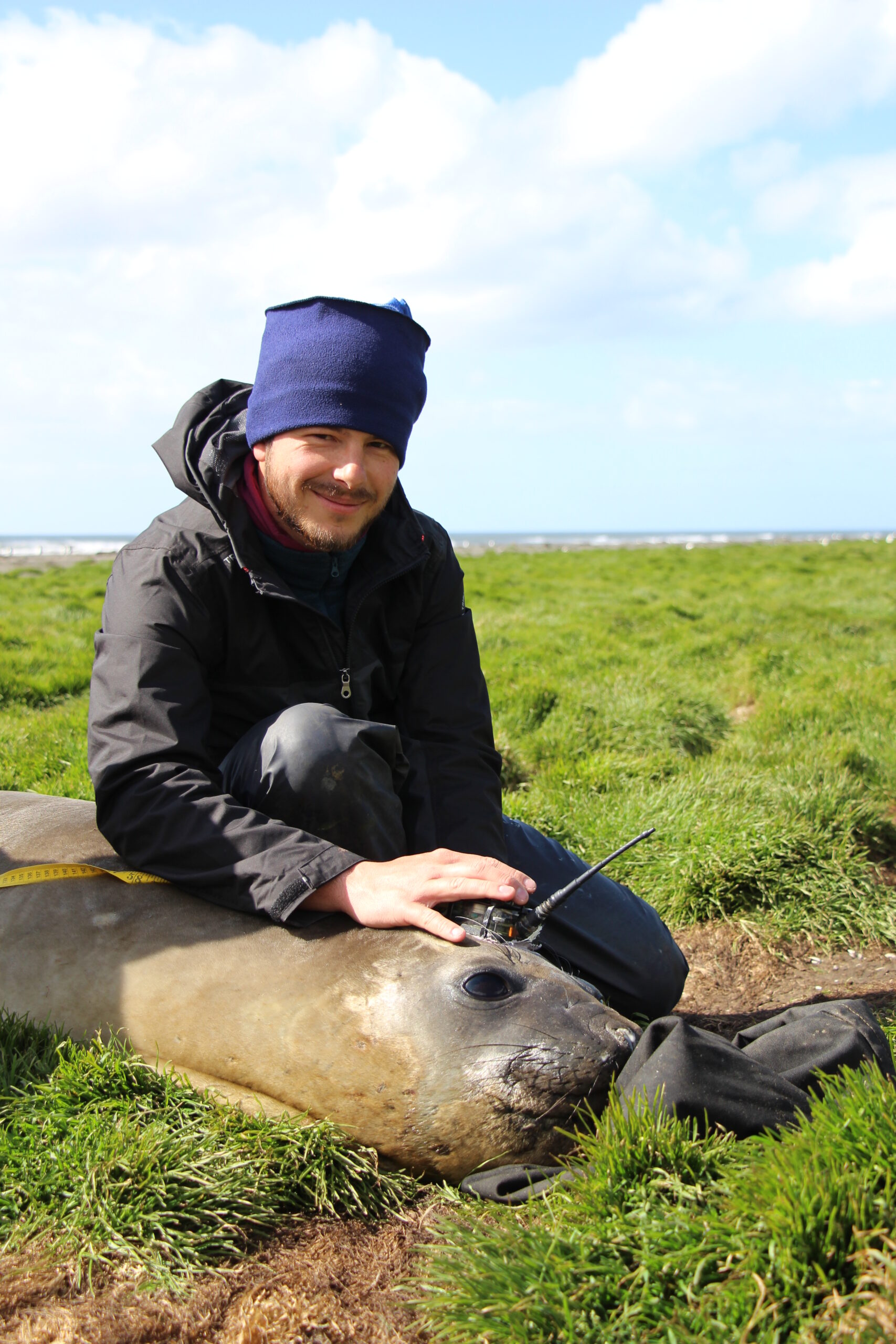
Abstract:
Deep-diving vertebrates evolve within a tri-dimensional ocean where the physical and biological conditions are dynamic. These variations are likely affecting their utilization of the vertical dimension of their environment. To obtain an accurate understanding of the habitat use of deep-diving animals, it is important beforehand to review the environmental information available to characterize this vertical dimension. The work I conducted during my Ph.D. first aimed to obtain, with the help of animal-borne active acoustics biologgers, a better characterization of the variability of the biological parameters along
the vertical dimension. An original biological characterization of the water column was made possible using small range active acoustics. From this characterization, we gained reliable insights on the biomass and behavior patterns of the mid-trophic levels organisms sampled by active acoustics. The second objective of my thesis was to develop an approach to integrate the vertical environmental information, in the form of profiles, by using functional analysis approaches. Doing so, I was able to propose habitat use models for two different species, the Southern elephant seal and the Blainville’s beaked whale. This original approach is significant as it allows the integration of the vertical dimension toward the development of tri-dimensional habitat modeling under the conditions that the spatial and temporal resolutions of the dataset are adequate. Thanks to the development of biologging tools, able to sample parameters that have been seldom obtained due to the difficulty of accessing them, more specific characterization of the water column can be conducted. This new characterization can gradually unveils the barely accessible world of deep-diving mammals by using these high-resolution environmental data to model the tri-dimensional foraging habitats of deep-diving vertebrates.
Bio:
Ocean depths have an indubitably strong fascinating power, and their appeal sparked my main research interests. My interests lie in studying diving vertebrates' behavior and, more specifically, in understanding how the oceanic dynamic environments affect their movement and foraging strategies. Dr. Tournier mostly uses data from biologging tools attached to the diving animals to model their habitat use, as they can provide high resolution on their environment. He earned my Ph.D. in France from the University of La Rochelle, where he studied the deep diving foraging behaviors of Southern elephant seals and beaked whales. By using a diverse set of biologging data, Martin was able to model their tridimensional habitat.
Martin is joining the NSF-funded project led by Dr. McDonald to investigate the habitat use of the post-breeding Emperor Penguins and infer which of the climatological and oceanic conditions affect their
diving and foraging strategies.

